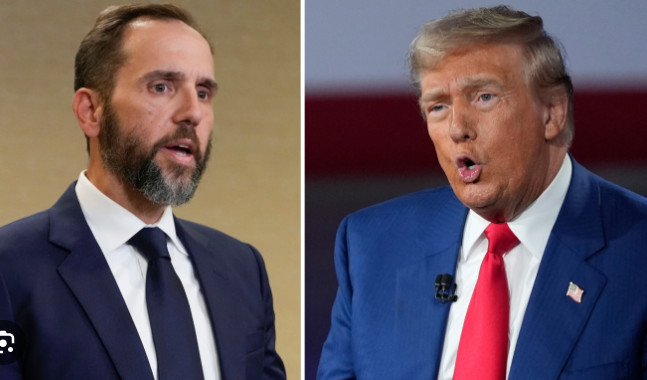On Friday, the judge handling President Donald Trump’s 2020 election meddling case released additional evidence gathered by special counsel Jack Smith, including a massive batch of extensively redacted documents.

The 1,889 pages of material, which Trump’s legal team had tried to keep hidden, make up four volumes of an appendix submitted by Smith’s prosecutors alongside a motion over presidential immunity that was revealed earlier this month. U.S. District Judge Tanya Chutkan, who is handling the lawsuit, ordered the redacted appendix to be unsealed last week but postponed its release to give Trump time to appeal her decision. The new materials contain transcripts of court proceedings, interviews, speeches about the case, and supplementary source material.
Smith stated that most of the appendix contains sensitive information that should not be made public, and the released version includes hundreds of pages still under seal. The evidence, subject to a protective order granted at the start of the case last year, is anticipated to contain transcripts of grand jury testimony and FBI interviews.
However, many records contain publicly available information, such as vote results and comments from Trump and others associated with the case. Prosecutors also included Trump’s address near the White House on January 6, 2021, in which he announced to a gathering of supporters that he had won the election and added, “We’re going to the Capitol.”
In an order published Thursday, Chutkan repeated her decision to reveal the appendix, stating that the public had access to “all facets of criminal court proceedings.” Trump’s legal team attempted to keep the papers sealed, alleging their release could affect the 2024 presidential election. Still, Chutkan said she did not find their arguments convincing and would not consider political considerations when guiding the case.
Trump was initially indicted last year, with prosecutors charging that he and his aides hatched a massive plot to change the 2020 election results. The case was halted for months as Trump’s attorneys claimed he should be immune to prosecution.
The Supreme Court ruled over the summer that presidents are immune from “official acts” committed in office. Smith submitted a fresh indictment, limiting the allegations to conform with the court’s judgment. Chutkan is now evaluating whether Trump is immune under the Supreme Court’s framework. He’s pled not guilty. Smith’s team filed a motion seeking Chutkan to rule that Trump was not immune to prosecution, which was released on October 2. Trump’s lawyers have until November 7 — two days after election day — to respond. His lawyers claimed that Chutkan should not release any more material in the case, arguing in a petition that the “asymmetric release of charged allegations and related documents during early voting creates a concerning appearance of election interference.”
However, Chutkan stated that the court is not limiting public access to one side of the issue, as Trump and his team can offer their legal arguments and information.
In a separate decision issued on Wednesday, Chutkan rejected Trump’s request that prosecutors seek out and turn over more information that he claimed would help his defense. Chutkan stated that prosecutors may have already sought the material Trump seeks or may not have it in their possession.
Among the evidence Trump unsuccessfully sought was information regarding supposed undercover agents visiting the Capitol on January 6. According to Chutkan, the former president “does not provide more than speculation that there even were any such undercover actors” at the Capitol when Trump’s supporters broke in.

